At the start of every school year we take our 6th graders aside for some special Tefilah learning that helps them get ready to participate in Middle School Tefilah. I returned to my office after the first of these special sessions, called “6th Grade Tefilah Bootcamp” to find the following thought-provoking prompts and responses on my desk. I hung them on my walls and took some time to think about what I found there…
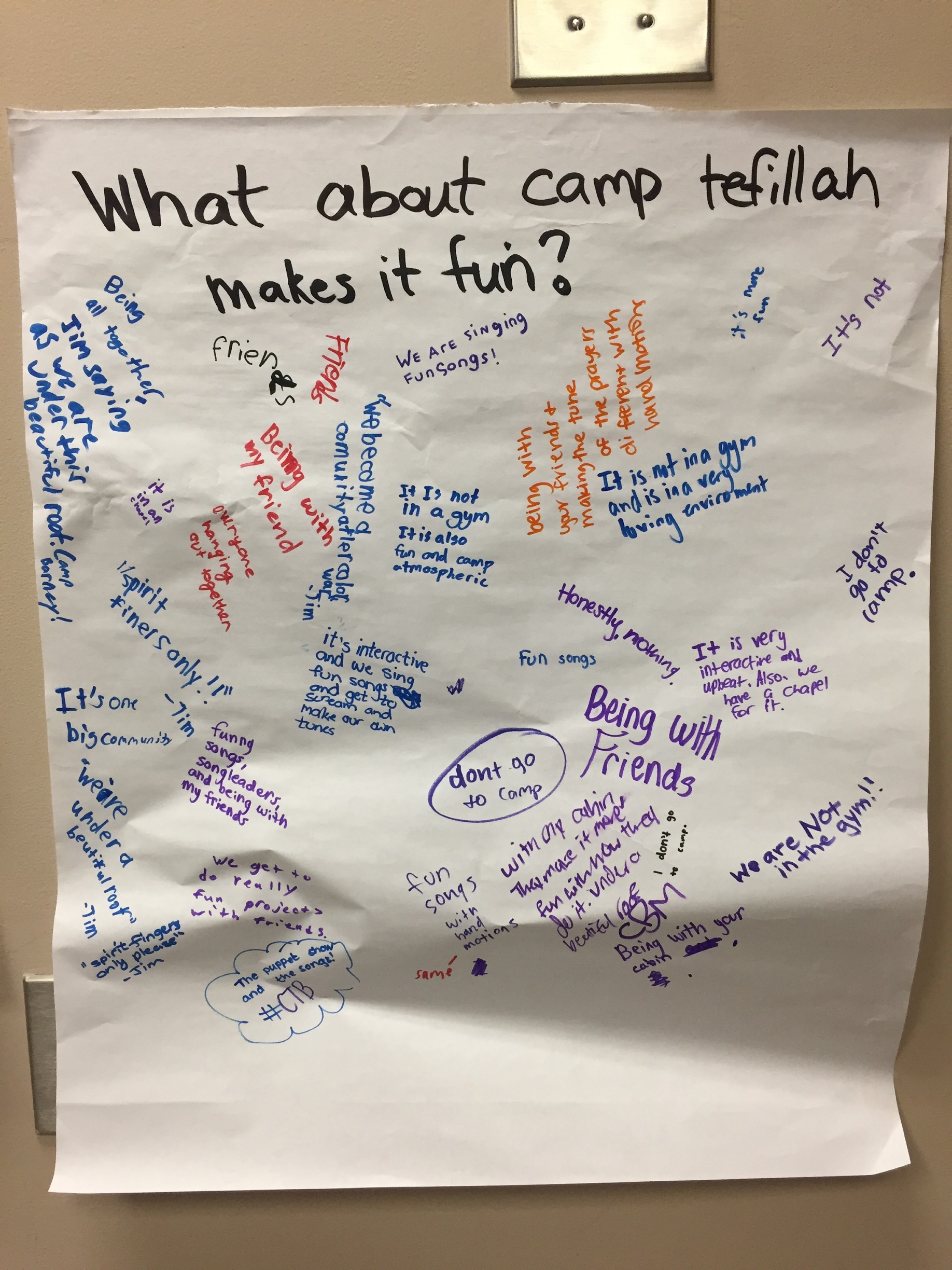
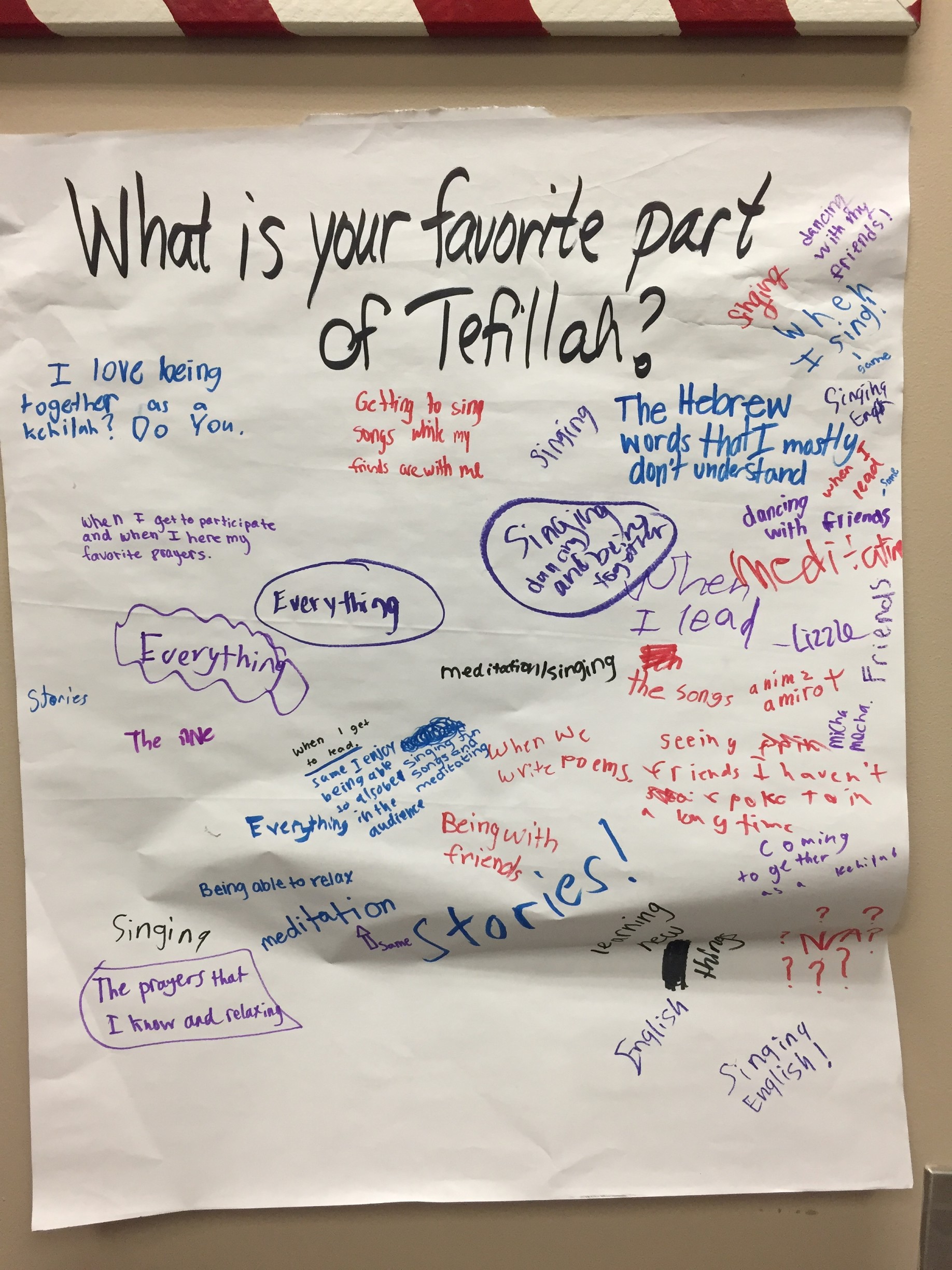
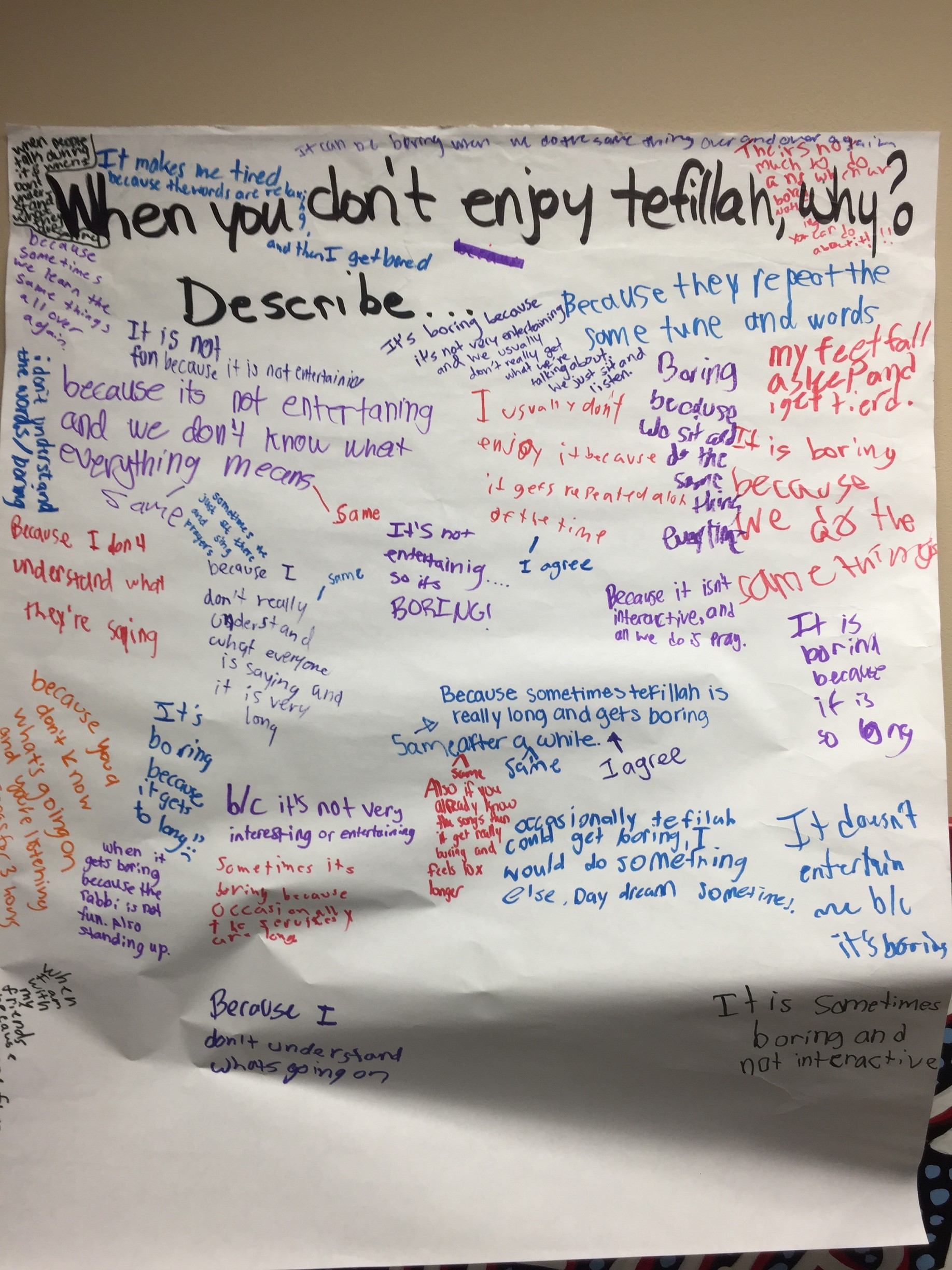
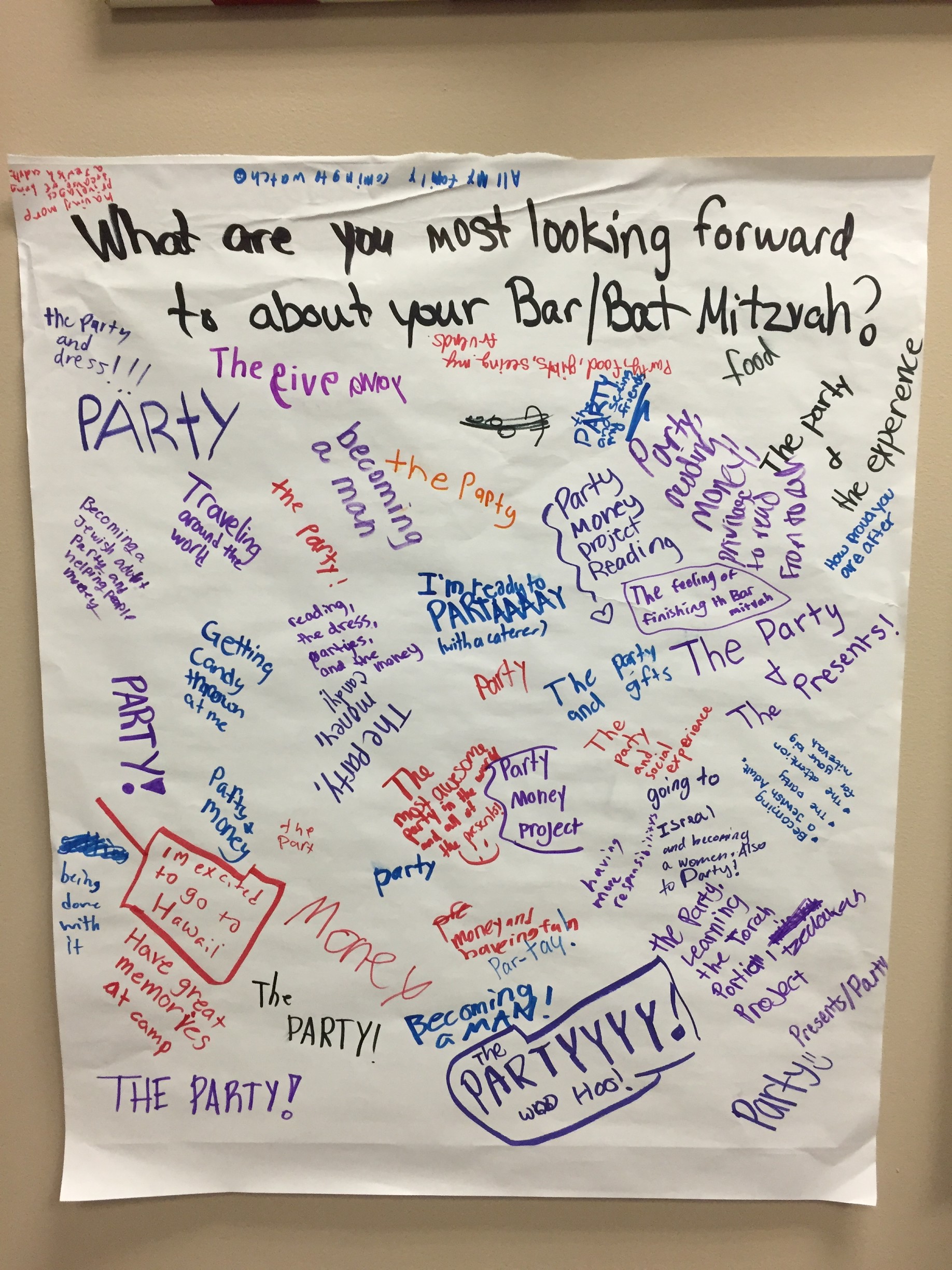
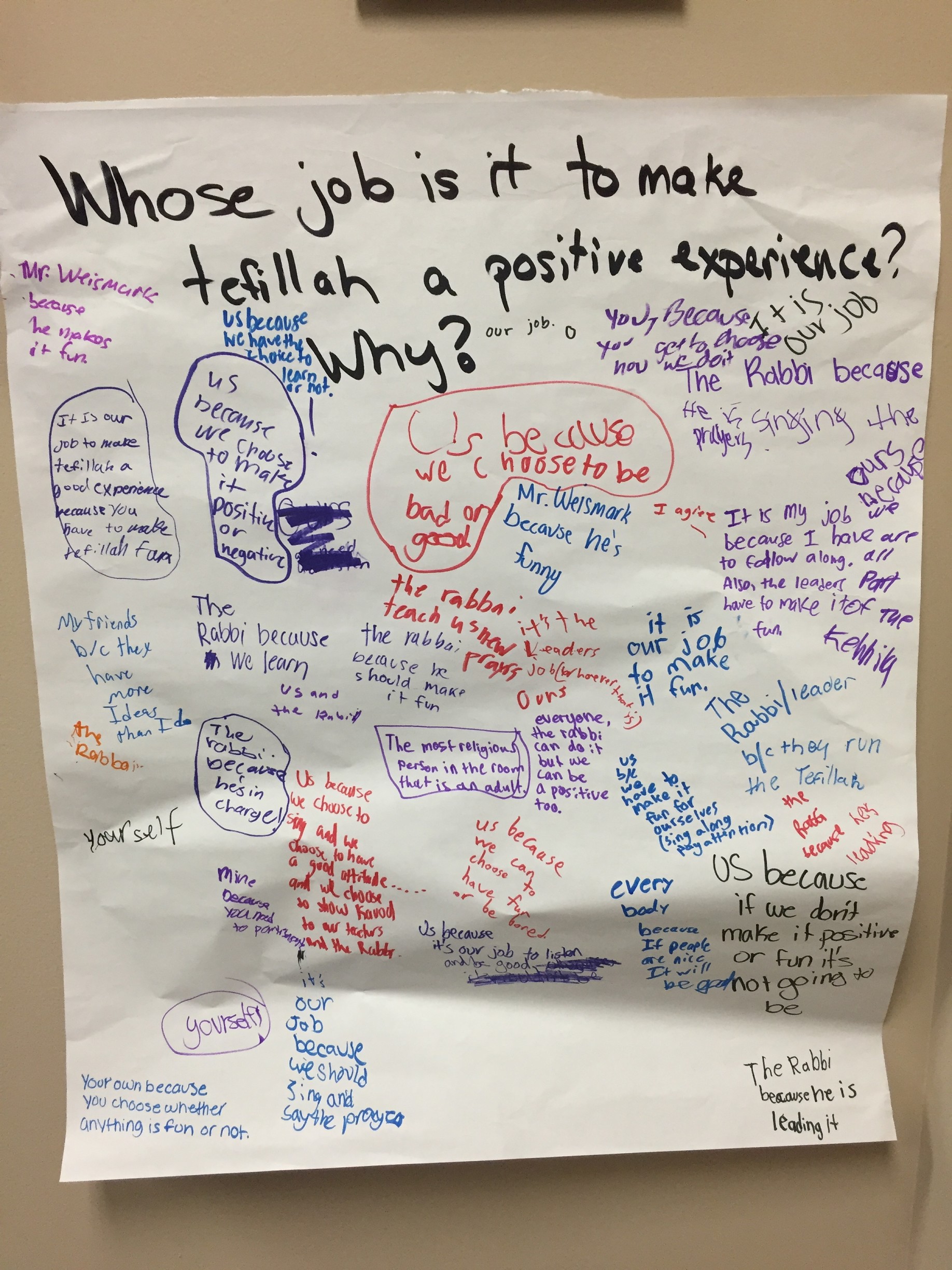
I am thrilled that our 6th graders have so much to say about Tefilah and are so comfortable sharing their ideas. I know that their journey through Middle School will bring much nuance and insight to these emerging ideas as well and look forward to that. In the meantime, since I am not able to attend the next installment of bootcamp I wrote some responses that will be shared by one of our Jewish Studies teachers. What would you say differently? What would you add? What would you challenge?
I was quite interested in seeing the notes from last week’s chalk talk. I am so happy to see my friends in 6th grade thinking about tefilah in such diverse and dynamic ways. Here are a few things I would share with the 6th grade if I had a chance. Perhaps you could share these with them:
- When it comes to favorite parts of tefilah. My response would be that my favorite part very much depends on what’s going on in the rest of my life. If I have a friend who is sick or having surgery then my favorite part is mishebeirach. Since my father in law died this summer I appreciate the mourner’s kaddish in new ways. When I’m having a rough morning I like Modeh Ani because it reminds me that I am actually luck to be alive. What if our favorite part of tefilah changed based on what’s going on in our lives?
- I really like the question of whose job it is to make tefilah a positive experience. I am glad that so many people think it’s my job! It is definitely my job to make Tefilah a safe, meaningful space. To make sure that everyone has what they need in order to have a positive experience. But I also like the idea that it’s up to every individual to make Tefilah positive for themselves. The more we take personal responsibility, the better life is in all areas. Also, a lot of people interpreted “positive experience” as “fun.” I think that lots of things can be positive experiences without being “fun.” Tefilah will not and should not always be fun. But it should always be a positive experience.
- Camp Tefilah. There’s no doubt that camp tefilah is often a positive experience. It’s really nice to be able to have Tefilah at camp, in such a beautiful setting, surrounded by friends and counselors who are all happy to be there. The biggest difference between Camp Tefilah and non-camp tefilah in my opinion is represented by the idea of the gym. It’s not such a bummer to me that we pray in a gym. Instead, the gym is a symbol of the fact that during non-camp Tefilah we have the extra challenge of figuring out how tefilah fits into our regular lives. The best part of camp is that it’s not our regular daily lives. The challenge of non-camp tefilah is figuring out how it fits with our busy and demanding schedules.
- There are plenty of reasons not to enjoy tefilah. My own reasons for not enjoying tefilah are these: I don’t like to sit so much. Some of the prayers really don’t speak to me all that often. And I don’t like getting dressed up to go to synagogue. Having said that, the best tefilah in my opinion is one where everyone is literally on the same page. When everyone sings the Shema at an all school Kabbalat Shabbat I can literally feel god, my ancestors, and all the generations there in the room. I look forward to those moments very much and there’s not really anything that creates those chances like tefilah. I sometimes get frustrated because I think we could have at least one of those moments every time we have Tefilah if we would just open our hearts and be less scared of taking chances.
- Bar Mitzvah—It’s always risky to put all your hopes into a great party. It’s too easy to be disappointed. I prefer to focus on the things I can control—making the most of spending time with my family, really learning prayers so I don’t feel like a phony, writing a dvar torah that actually expresses my ideas about life when so many people are listening, developing a relationship with my rabbi. These are the things I can control. It’s hard for a 13 year old to control whether they have a great party or get a lot of money. It’s too bad that this continues to be the focus, but it’s understandable given the age at which we have bar mitzvah. I still think bar mitzvah should be at age 16 when we are older and more mature!